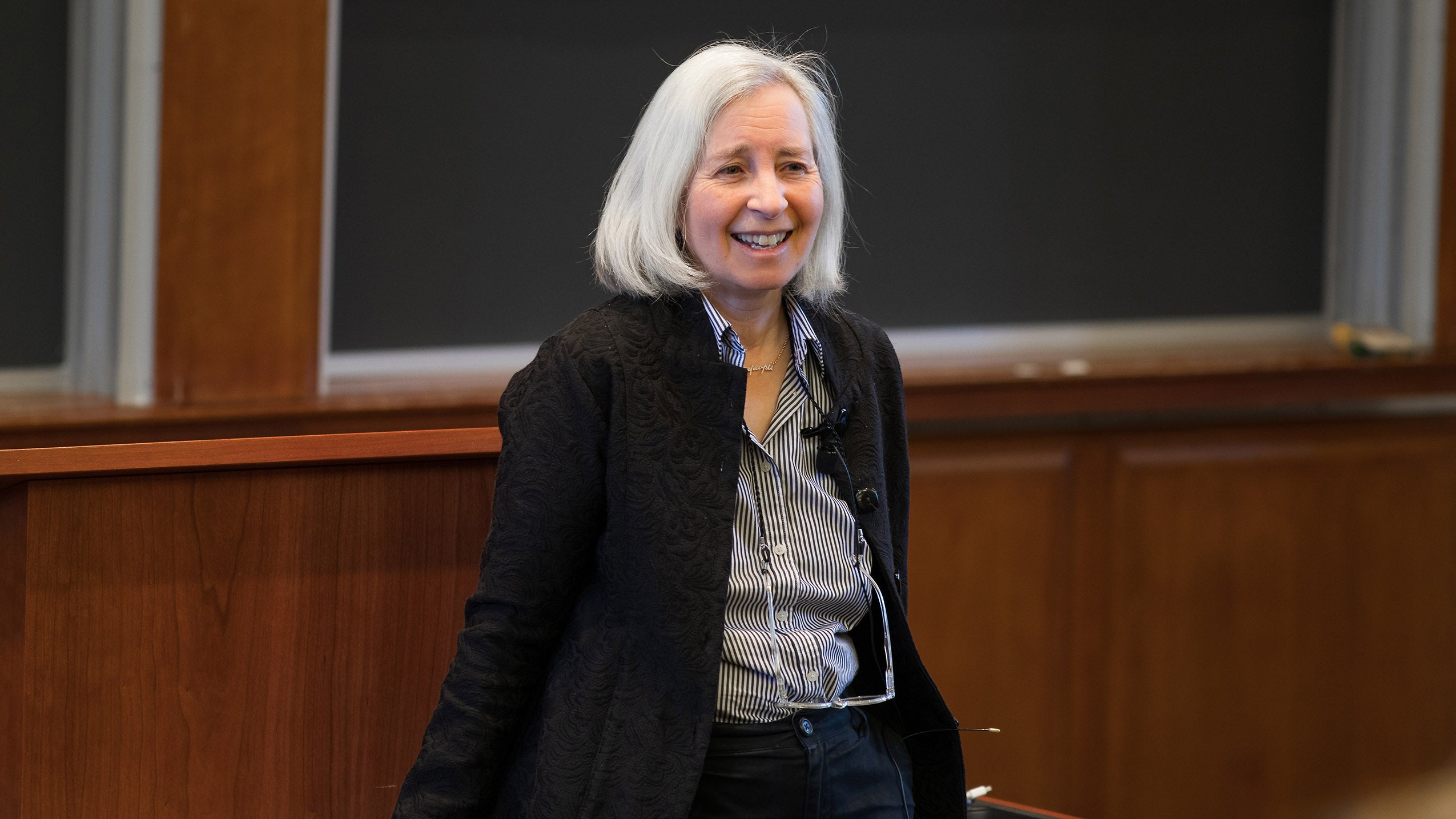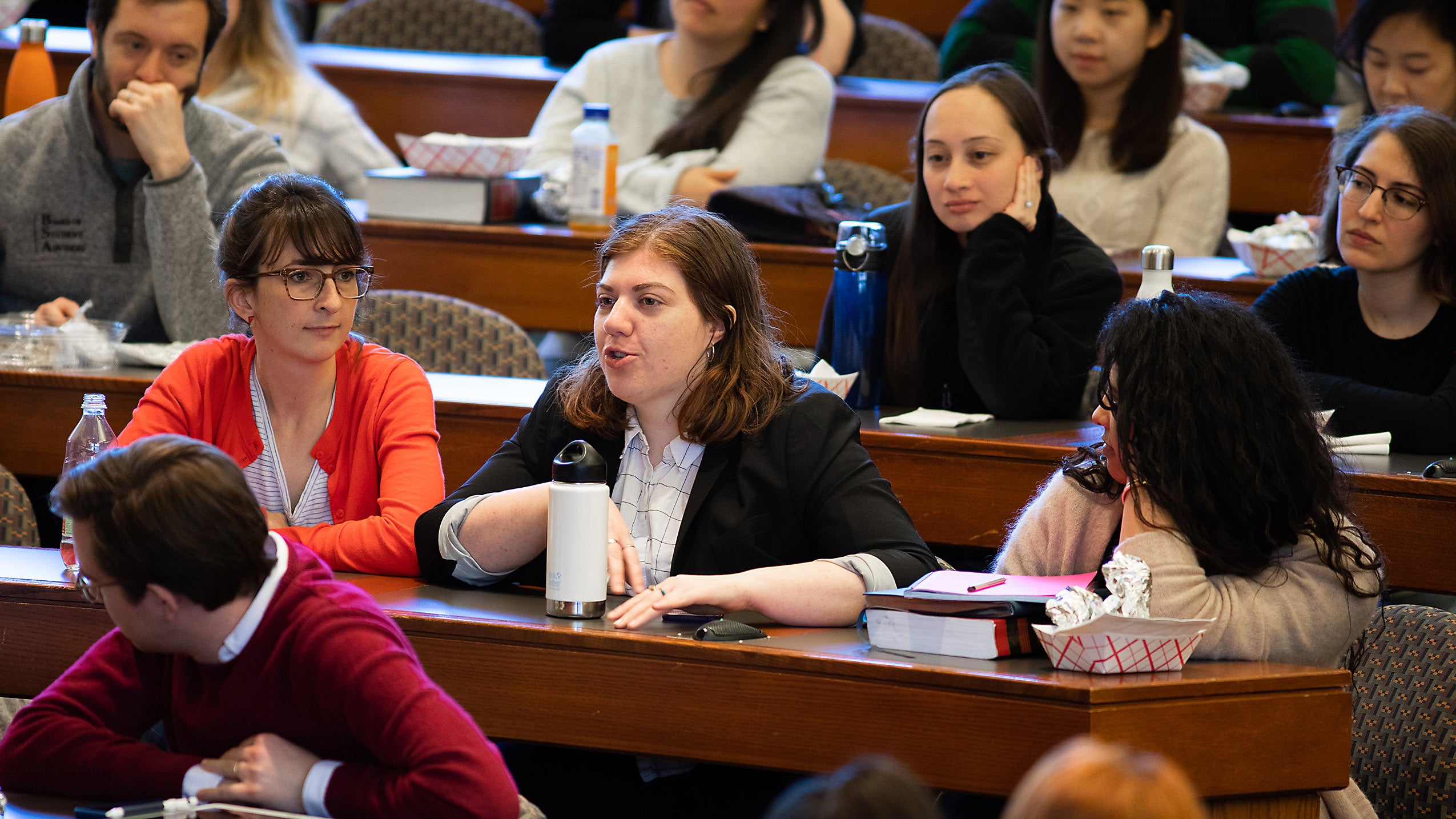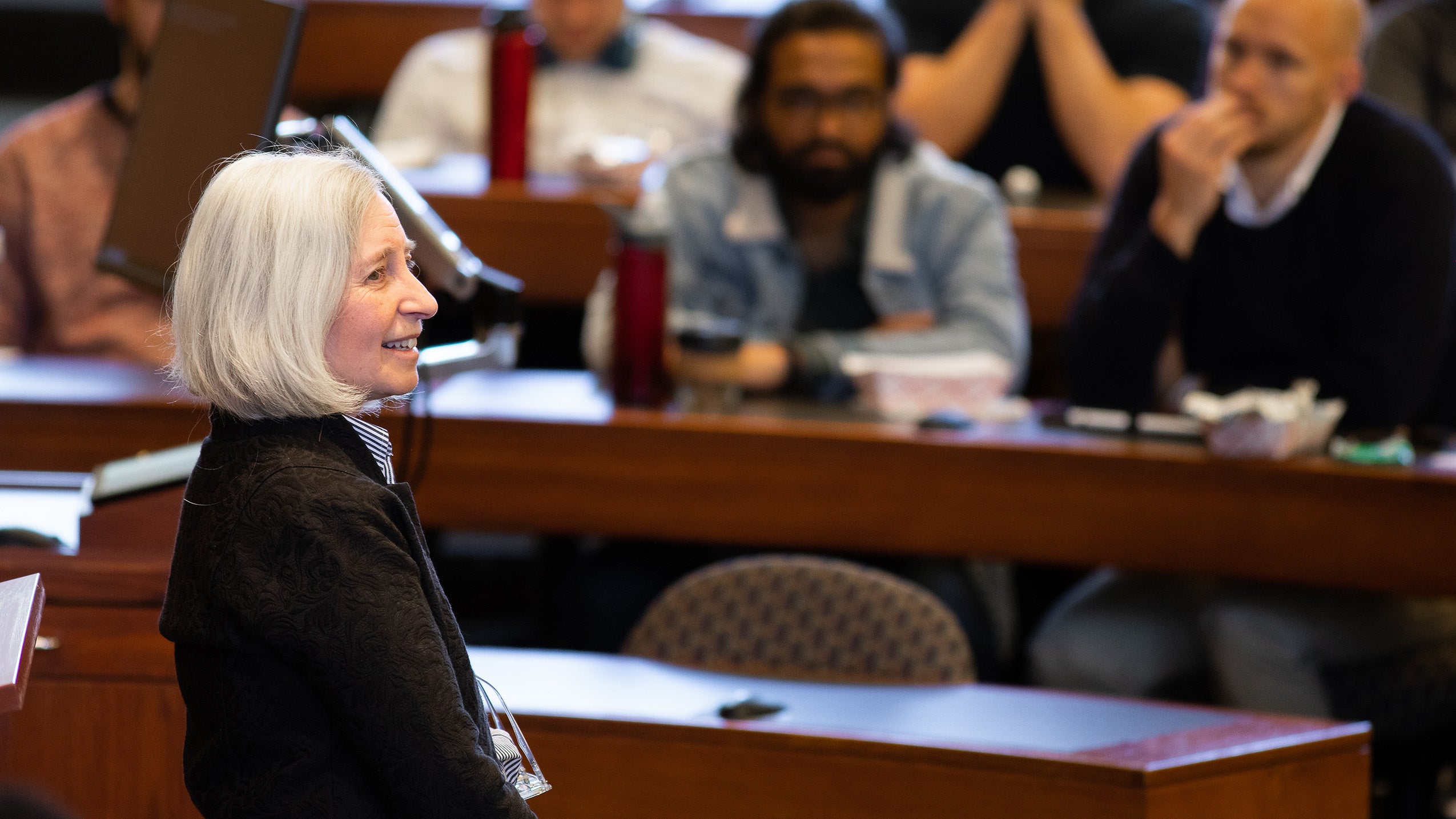In her Last Lecture to the Harvard Law School graduating class, 300th Anniversary University Professor and former HLS Dean Martha Minow focused on the art of asking good questions—a talent she told the students would be key to their work in the future, and a skill that they should “cherish and cultivate.”
“I would like more time with all of you,” she told the graduates at Austin Hall in April. Her informal talk was peppered with humor and personal reflection, even invoking her love of “Star Trek.” She also referenced two of her favorite commencement speeches, one by author J.K. Rowling, and one by humorist Art Buchwald, quoting the latter in its entirety: “Graduates, we the older generation are leaving you a perfect world. Don’t louse it up.”
Turning to the theme of questioning, Minow recalled that, before becoming a parent herself, she was fond of giving baby-sized “Question Authority” T-shirts to friends who’d had children. She also recalled some game-changing questions asked by students she’d taught at HLS. One student responded to the genocide of Darfur by mobilizing a campus awareness campaign that spread to universities around the world. This happened, she said, because the student had asked the question of whether the American public could care enough about a crisis in Africa to move toward political action. Another former student was given the task of reducing a New York company’s tax burden; after pondering the tax code he asked himself if there was a better way. That’s when he looked over a bridge from his office window and saw New Jersey—where he successfully proposed the company relocate, thus avoiding the higher New York taxes.

At other times, Minow said, the course of her own work was changed by questions that were asked of her. For instance, she once led a policy team to implement a federal program promoting access to public school curricula for children with disabilities. Following her legal instincts, she focused on dealing with administrators about digital and copyright law. But her colleagues at the Berkman Klein Center asked why she didn’t reframe this effort as a business issue, bringing the five major textbook companies together to make accessible materials. “Because of that question, we produced a set of materials, conferences and meetings, and that changed the business model of those companies.”
With apologies to the non-Trekkies in the audience, Minow invoked an episode of “Star Trek: The Next Generation,” where destiny is changed because the right questions are asked. In this episode, there is litigation between Data, a brilliant and near-human android, and the robotics expert who wants to take him apart for research, potentially destroying his memory. The court initially concludes that Data is human-created, and therefore usable as property. But the captain meets with the wise bartender Guinan, played by Whoopi Goldberg, and comes back to the trial with new questions: Aren’t human beings also machines made by people? And won’t humans be judged by how fairly they treat the new generation of androids?

“I tell you this story,” said Minow, “to [help you] understand the power of asking the right questions,” adding that the question of right and wrong, even if you already have a legal answer, is crucial to this story.
“Ultimately, our questions define us: What we care about, what matters, and what we become,” she said. “The questions that you will ask as graduates—that will make the difference about whether a person can stay in his or her home, whether or not the internet is uncensored, whether or not corruption is exposed, whether financial misconduct is exposed, whether or not financial opportunities are pursued. And whether or not there will be new enterprises—and I don’t mean spaceships, but maybe you’ll do that too.”
